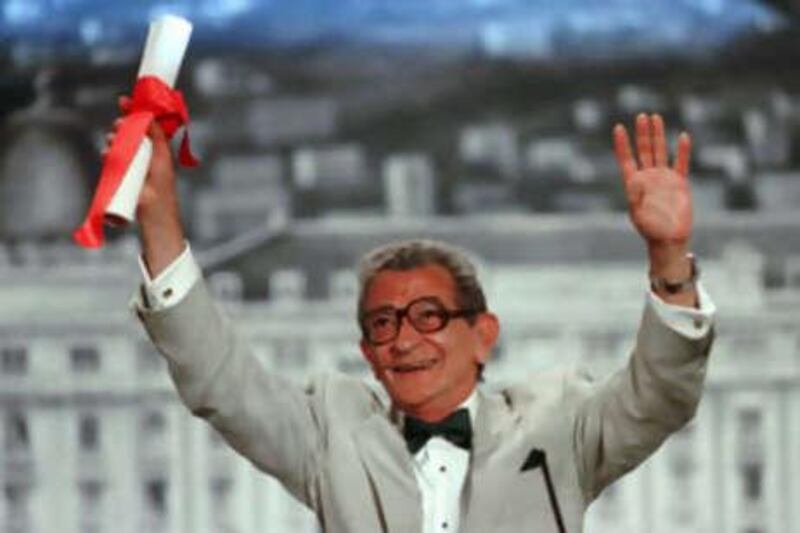Egypt's best-known filmmaker, Youssef Chahine, died in Cairo today after suffering a brain haemorrhage and being in a coma for six weeks, much of that time in France. Born Gabriel Youssef to a Greek Orthodox family of Lebanese origin in Alexandria in 1926, Chahine attended the prestigious Victoria College, where the Palestinian-American author Edward Said was among his classmates. His departure to study filmmaking in the United States against the backdrop of the Second World War - a move he undertook despite strong opposition from his family, notably his businessman father - was to be brilliantly dramatised in Eskendereyya leh (Alexandria Why, 1979), the first part of an autobiographical trilogy widely regarded as his definitive statement on the cosmopolitan identity of his birthplace and the international sense of community he sought. His first movie, Baba Amine (Father Honest, 1949), shocked what until then was a sheltered audience with its unhappy ending: an innocent man is hanged. With his next film, Ibn an Nil (Son of the Nile, 1951), began what became a lifelong relationship with the Cannes Film Festival.
Chahine never won the Cannes Palme d'Or, but in 1997 received a lifetime achievement award. A regular feature of the international festival scene - more than such Egyptian contemporaries as Hassan al Imam and Salah abu Seif - he acquired the sobriquet "international director". He was the Arab world's first self-styled auteur and was often referred to as the Ustaz, an Arabic title meaning master or professor. It was Bab al Hadid (Iron Gate, 1958) - which is the name of Cairo's main railway station - featuring Hind Rustum, the Egyptian counterpart of Marylin Monroe, that made his name. Chahine was among the first to work with actors Omar Sharif and Faten Hamama, icons of the Egyptian screen. He was noted as much for his stunning acting performances as for his directorial prowess. He was artistically versatile and politically adaptable, producing such big-budget historical dramas as An Nasser Salahuddin (Saladin the Victor, 1963) - in which the Ayyubid liberator of Jerusalem stood in for Gamal abdel Nasser in the conflict with Israel - and provocative documentaries like El Qahira Menawara bi Ahlaha (Cairo Is Blessed With its People, 1991).
This last was a harsh critique of contemporary Egyptian society and the spread of conservatism and marked his association with Kefaya (Enough), an opposition movement. By 1999, many critics, including myself, were unhappy with Chahine's progressively less sophisticated attempts at reaching out to a broader audience, but while interviewing him about Al Akhar (The Other, 1999) the septuagenarian proved so warm, funny and engaging it became hard to criticise anything he had done. Chahine was to complete two more films in the same quasi-commercial vein, but after his health deteriorated, it was left to his most prolific disciple, Khaled Youssef, to complete Chahine's last movie, Heya Fawda (Is It Chaos), last year. Chahine had no children. He is survived not only by his wife, Colette, but by literally thousands of students, admirers and protégés.
Khaled Youssef was only one of the many filmmakers - including, notably, Youssri Nassrallah - not to mention actors, who came out of the Ustaz's coat. Misr International Films, the production company Chahine founded in 1972, which later bought out and refurbished many Cairo theatres, was to spawn generations of artists, becoming a kind of alternative film institute and developing a critical mass of its own. His funeral is to be held at Cairo's Greek Catholic Cathedral tomorrow, after which he is to be buried in his family's crypt in Alexandria.
@email:yrakha@thenational.ae





